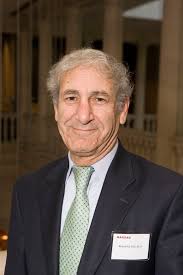BNN Editor Robert M. Post Wins Mogens Schou Award for Research from the International Society for Bipolar Disorder
On May 4, 2017, at the annual conference of the International Society for Bipolar Disorders (ISBD) in Arlington, Virginia, Dr. Robert M. Post, Editor-in-Chief of Bipolar Network News, was presented the Mogens Schou Award for Research. It is one of the most prestigious honors in the field of research on bipolar disorder.
Mogens Schou was a Danish psychiatrist and researcher whose research in the 1950s led to lithium’s use in the treatment of bipolar disorder.
Upon the announcement of the award by Dr. Marion Leboyer, who received the Schou research award in 2011, Dr. Post received a standing ovation. The following comments are adapted from Dr. Post’s acceptance speech.
“It is the highest honor I could imagine to receive an award from the ISBD in the name of Mogens Schou. Not only did Schou pioneer the development of lithium for the recurrent mood disorders, but he beat back the British naysayers and critics (Michael Shepherd and Harry Blackwood) by conducting the definitive long-term controlled studies of lithium, and then continued to promote its benefits.
In Schou’s obituary, fellow researcher Dr. Paul Grof wrote,”What was most striking and profound about him was his love and compassion for people.” Schou himself said upon receiving an award, “For me every single patient whose life was changed radically by lithium outweighs honors and awards.”
Thus, it is only appropriate that I relay some of the new data on the broad clinical effects of lithium, especially since lithium today is used way too infrequently, particularly in the United States. This list is a bit too condensed, but LITHIUM: increases neuroprotective factors and neurogenesis (adults like me in the room are happy to know that we are still making new neurons). Lithium increases the volume of the hippocampus and cortex, and blocks cell death.
Lithium prevents mania, depression, and even recurrent unipolar depression, and reduces suicides 10-fold.
Lithium lengthens telomeres [bits on the ends of DNA that protect it during cell replication] back to normal, enhances health and longevity, decreases the incidence of some neurological diseases (including dementia), and half a pill a day for one year prevents the progression of mild cognitive impairment.
Remarkably, higher trace amounts of lithium in drinking water prevent suicide in the general population. This has now been shown in more than a half dozen studies that compare naturally occurring levels of lithium in the water in different geographic areas.
No other drug comes close to having this range of benefits. So I can only reiterate a message Schou was determined to spread in his final years: “We need to use lithium more often.”
If Schou had seen the excess of childhood-onset bipolar disorder in the United States, he would surely have lobbied for better treatment of these young people and more treatment research.
I thank the ISBD for this great honor and the opportunity to try to foster Schou’s ideals.”


